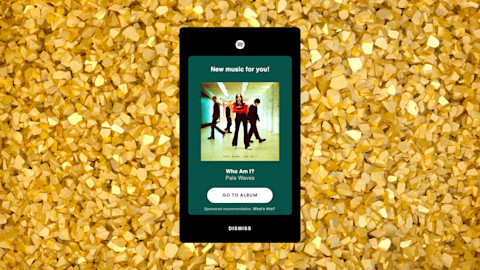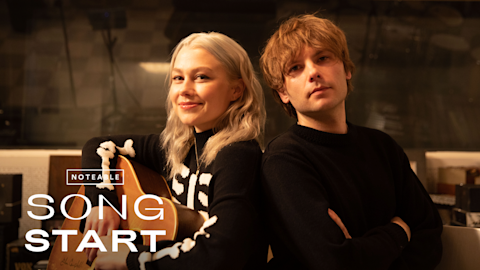The acclaimed composer discusses his new album and why he doesn’t fall asleep to music.
“I’m a little bit stressed,” Nils Frahm admitted upon picking up the phone last month; his tour was approaching, and he was figuring out logistics for it all. “Are you recording? Because you’re never going to remember all this,” he laughed, launching into a list of the gear that the German pianist/producer/electronic musician would be carting around the world with him: synthesizer, three drum machines, two pianos, toy piano, touring pipe organ, pump organ, Mellotron, five Space Echo tape delays, plus monitors, front-of-house mixing desk, and sundry mics and cables—a full truck’s worth of stuff, basically.
“We spend most of our fees on logistics,” he admitted. “But I’m pretty stubborn. I just hate the time we’re living in, and I want to be positive, so this is my way of presenting my complaints to the world — like, why can’t we do things like this more often?”
It’s funny to hear the 35-year-old musician talk about stress. For one thing, his first solo album in three years All Melody (released in America via Erased Tapes) was about to drop, and it is already getting rave reviews from outlets like NPR and Pitchfork. Beyond that, Frahm’s music is about as far from stressful as you can get. There’s a reason his work features prominently in playlists like “Musical Therapy,” “Peaceful Piano,” “Stress Relief,” and “The Most Beautiful Songs in the World.” Drawing from minimalism, neo-classical, jazz, and even ambient electronica, Frahm’s music is sensually enveloping, frequently meditative, and always transporting; it combines technical rigor with a profoundly emotional release.
Spotify for Artists spoke to Frahm about artistic growth and why music is the best medicine.
Spotify For Artists: How did you envision the album, going into it? It’s obviously a major statement for you.
Nils Frahm: I didn't want it to be a statement, so much. I just thought I’d take some time out and go back to the studio. I had many years on tour where I was never really in one place. When I was home it was only for a limited time, and I was basically sleeping between my unopened bags and unopened cases. I never really had much time to develop something with patience and a little bit of silence around me. My goal was just to learn something, because honestly, I felt a little bit burned out on my live show in 2015. It felt like I was never really able to write some major new work. I was basically forced to compose during sound checks, and I felt like I needed to stop everything and go back to school, in a way. I wanted to make an album which was kind of a learning curve for me. It sounds a little bit clearer and a little bit less like a record you would do in your bedroom. It really felt great to create this laboratory for sound.
(Photo Credit: Alex Schneider)
Spotify: Looking back, what, what surprised you the most about making it?
Frahm: It surprised me that it's still really, really hard—and really, really fun—to make an album. I know, because I’ve made a couple. What also surprised me—a track like “Human Range,” which has this almost creepy choir section and trumpet, it’s something I never expected writing. I could imagine what I wanted the album to be, but in the end there will always be one or two things you didn’t expect at all. Out of the 30 or 40 tracks you tried to make, there might be one or two things which, just by accident, turn out to be something that really surprises and inspires you. Your own music can be the best teacher.
Spotify: There’s an almost spiritual feel to some of the track titles, like “The Whole Universe Wants to Be Touched.” Is music a spiritual thing for you?
Frahm: Yes! Music is one of the last things that is absolutely free, absolutely uncensored. I can use it to channel all the stuff I can’t express in normal life, because there are so many rules. Society and culture all mean tons of rules. And music is maybe the gateway out of all these rules. It’s a spiritual gateway. Music can give us feelings and emotions we didn’t know we had. The most emotional, incredible moments I have had with music, you feel like, “I just saw Jesus.” [Laughs] I’ve never met Jesus, but when I meet people who have, or claim that they have—basically, that’s like the moment I discovered music. I knew that it would keep me stable and sane in this insane world.
Spotify: Are there certain records you return to in times of stress?
Frahm: There are some timeless records that put me into a mood which is almost like an emergency mood. Arvo Pärt’s Für Alina, Bach’s fugues, Miles Davis’ Kind of Blue, some ECM records. Steve Reich.
(Photo Credit: Alex Schneider)
Spotify: You’ve said that if you weren’t a musician, you would have become a psychologist.
Frahm: I think it all comes down to emotions, and music is such an interesting tool to manipulate people’s emotions. When I say I put on a certain record which could be a kind of rescue boat, it is almost like the perfect drug which puts you in the state you need to be in. So making music and composing for me is all about this curiosity about the condition of the human heart.
The first phase of composing is measuring the quality of the content emotionally. And often, I will play it for others, and not everybody, but quite a lot of people will come to me and describe things that make me imagine that they feel a similar thing. Music is a little bit like medicine, and whatever works for me, I hope that it would work for others. So this is my working model; I just play the music that heals me.
Spotify: Your music turns up on a lot of sleep playlists. Do you listen to music while you sleep?
Frahm: [Laughs] No, I can’t sleep to anything, I’m just much too into the music. I never drift away to music. I just can’t sleep when there’s music playing because I want to listen to it.
Popular Stories
video
How Julia Wolf Made It




